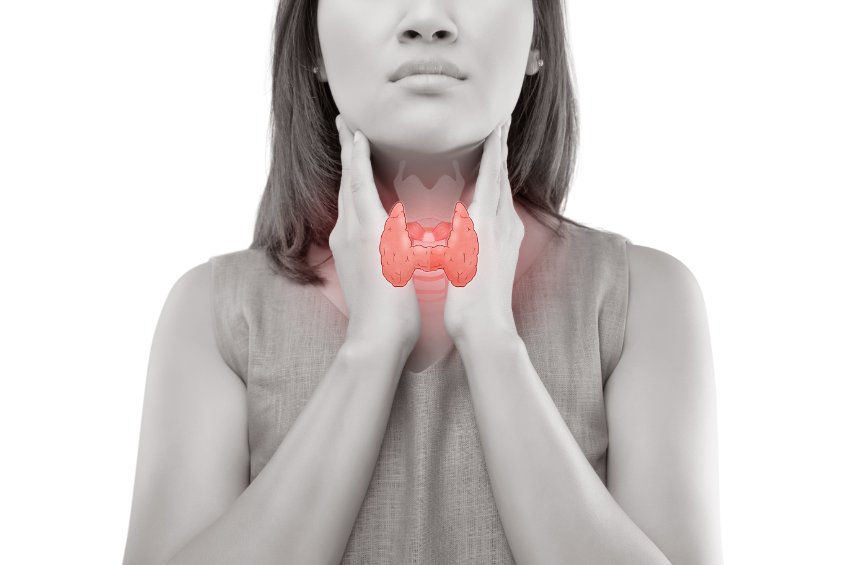The thyroid gland makes two hormones that are essential for all the cells in the body to work normally. The thyroid gland is an endocrine gland that is located in the neck and the two hormones it creates are called thyroxine (T4) and triiodothyronine (T3) that are released into the blood in the body. Thyroid disorders most commonly occur in women, although men can be affected as well. Some women are more at risk for thyroid diseases if they have had a thyroid problem in the past, had surgery or radiotherapy affecting the thyroid gland, or have a condition such as type 1 diabetes, anemia, or goiter. Thyroid disorders are very common and may be permanent or short-term. The thyroid gland is in front of the neck and has two lobes, one on each side of the windpipe.
The hormones that are secreted by the thyroid influence the metabolism of cells in the body. The thyroid hormones set the speed at which the cells in the body work. If too many of the thyroid hormones are released, then the body cells work quicker than normal, and a person has hyperthyroidism which is an overactive thyroid. Hyperthyroidism may lead to a quickening of the heart rate or increased activity of the intestines so a person may have diarrhea or more bowel motions that normal. If a person has too little thyroid hormones, then this is known as hypothyroidism and a person may have a slower heart rate than normal and the intestines may slow down which may cause constipation in some people. Some very common symptoms in hypothyroidism are feeling tired, weight gain, difficult concentration, depression, and feeling cold. Common symptoms in hyperthyroidism can be intolerance to heat, anxiety, weight loss, and sore eyes. If someone has few symptoms, a doctor can confirm an imbalance in the hormones by doing a blood test.
If someone finds out they have a thyroid disorder it can be treated with daily medication most of the time. There is also thyroid cancer which is rare but if a lump is found I the neck it is important to have a doctor check it. Sometimes having a baby can also cause a thyroid disorder and is known as postpartum thyroiditis, and it is usually temporary. It is important to ask a health care provider if you have questions, symptoms, or concerns occur regarding the thyroid.
Additional resources
https://www.btf-thyroid.org/what-is-thyroid-disorder
https://www.btf-thyroid.org/Pages/Category/types-of-thyroid-disorders
https://www.btf-thyroid.org/iodine-and-thyroid
New Nasal Spray for Allergic Reactions
Anaphylaxis is a severe and life-threatening condition that occurs when someone has an allergic reaction. Anaphylaxis...











